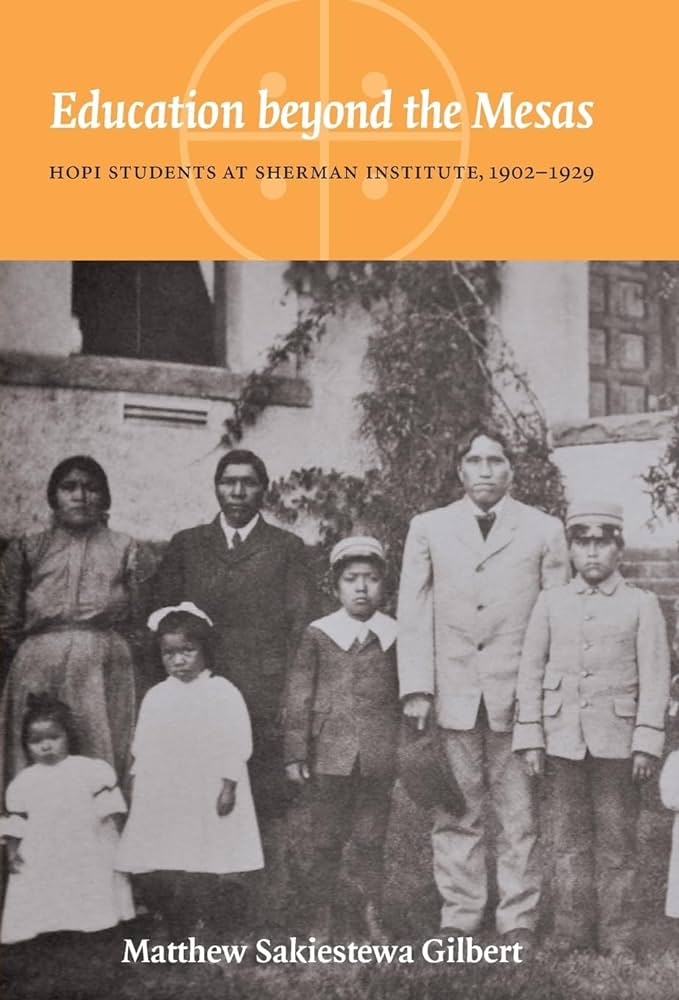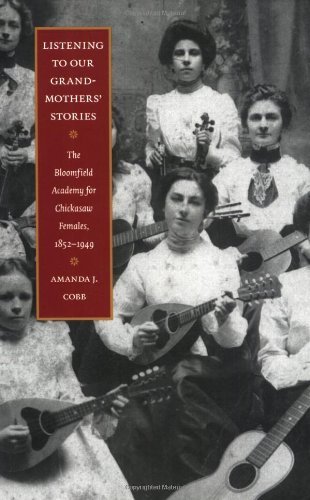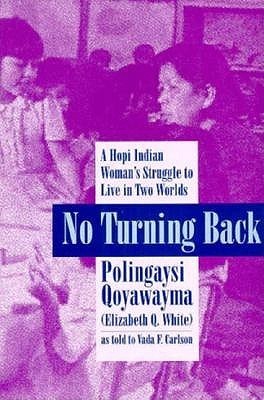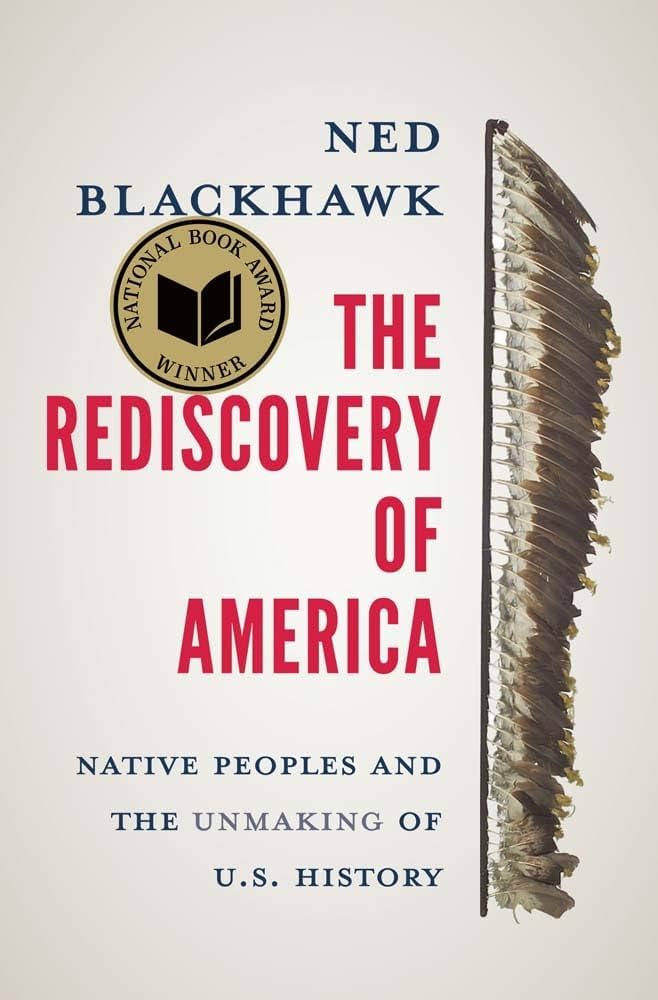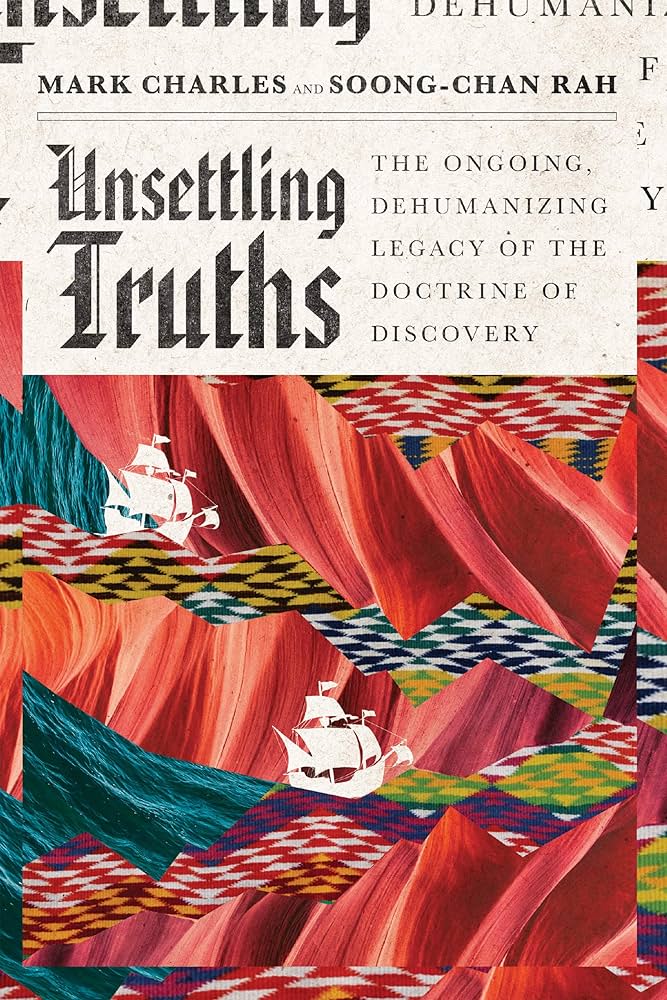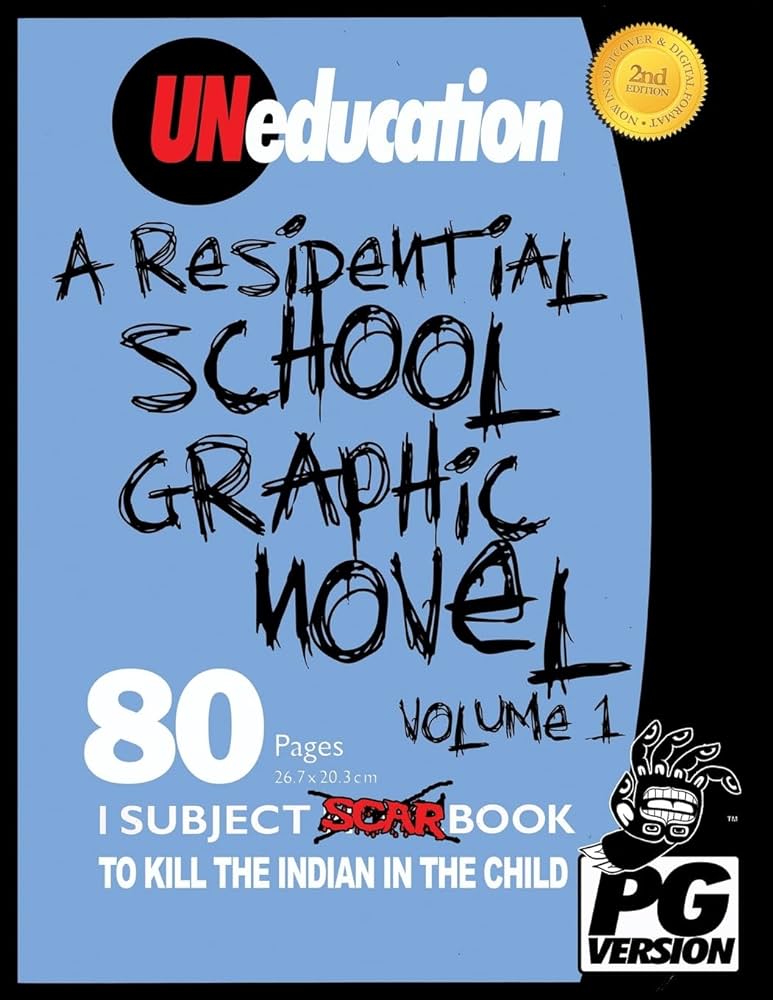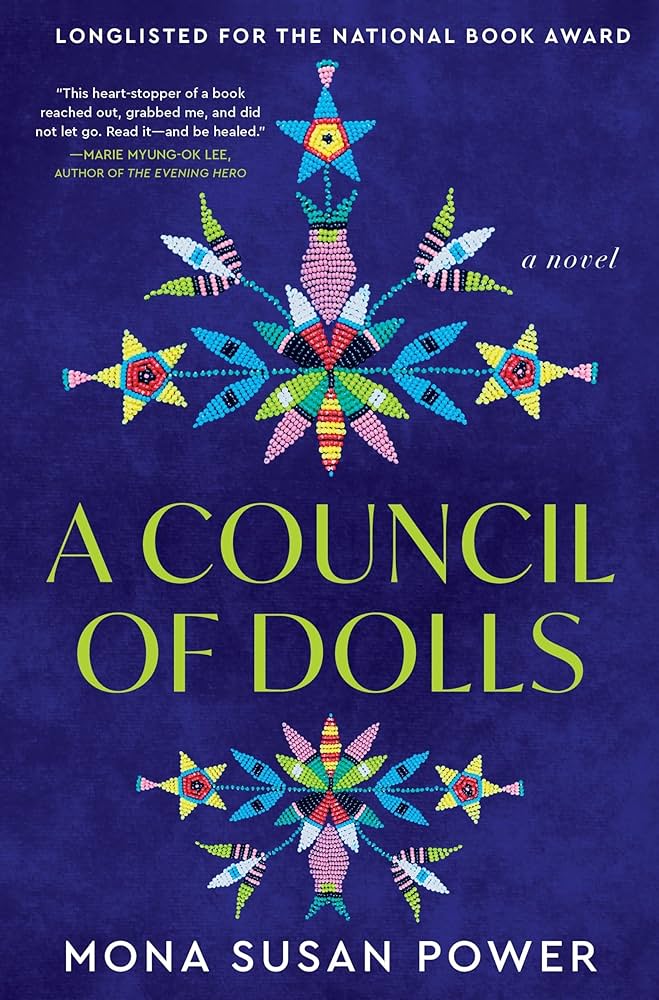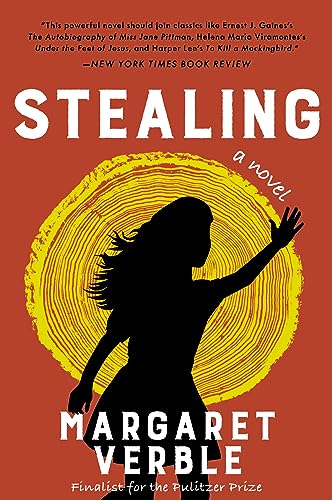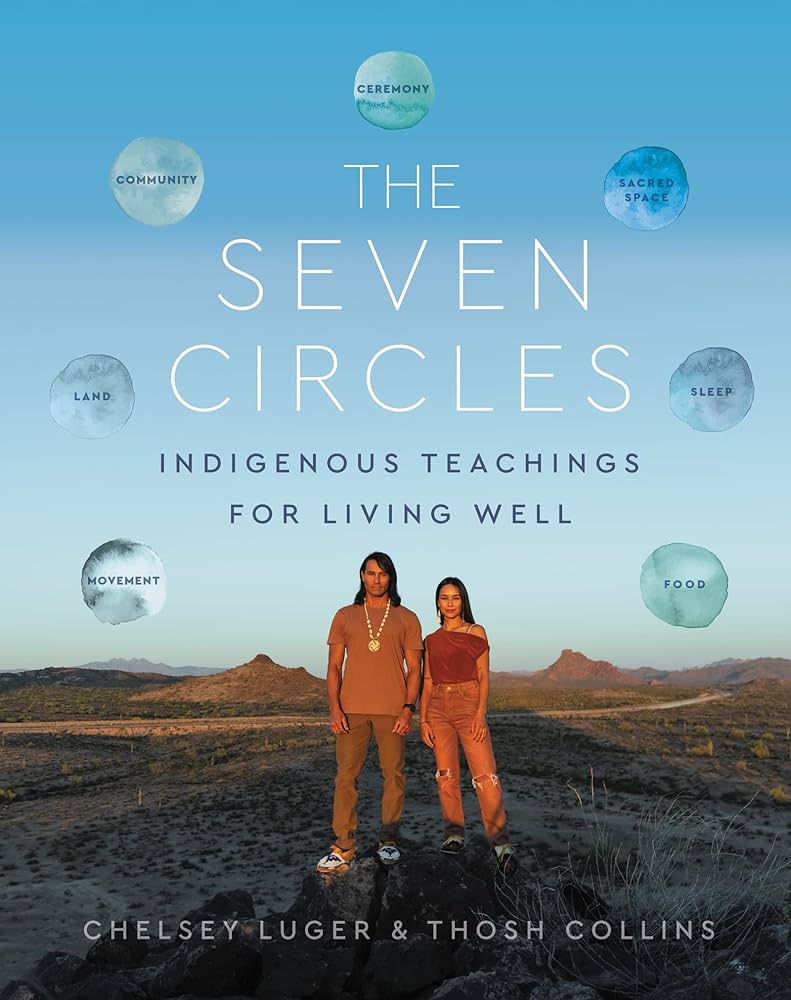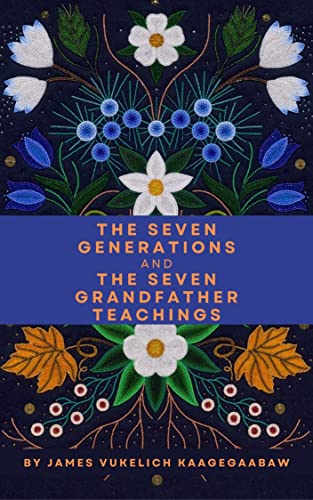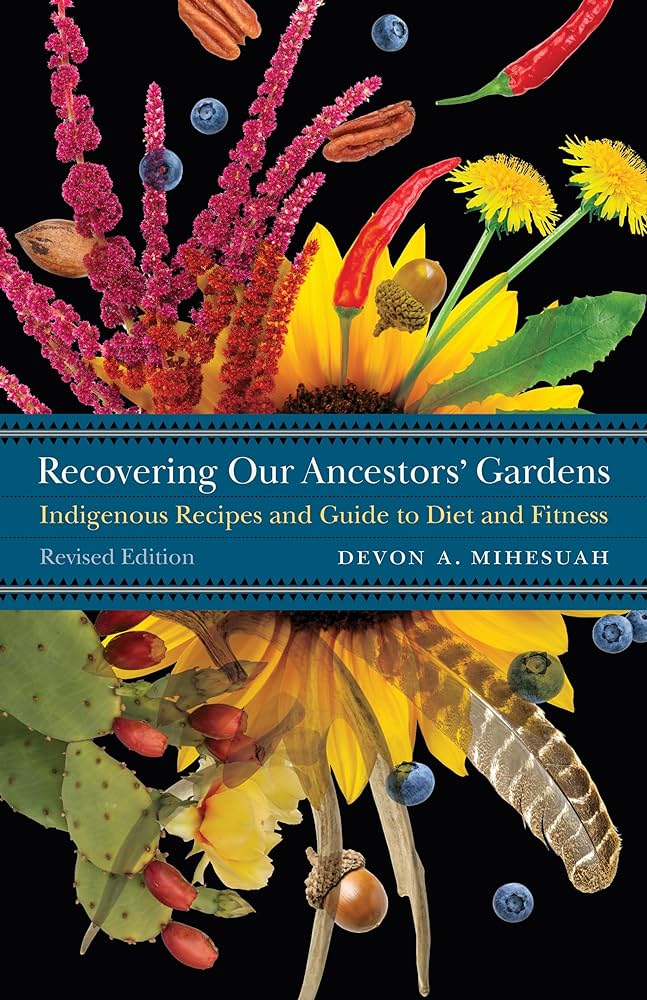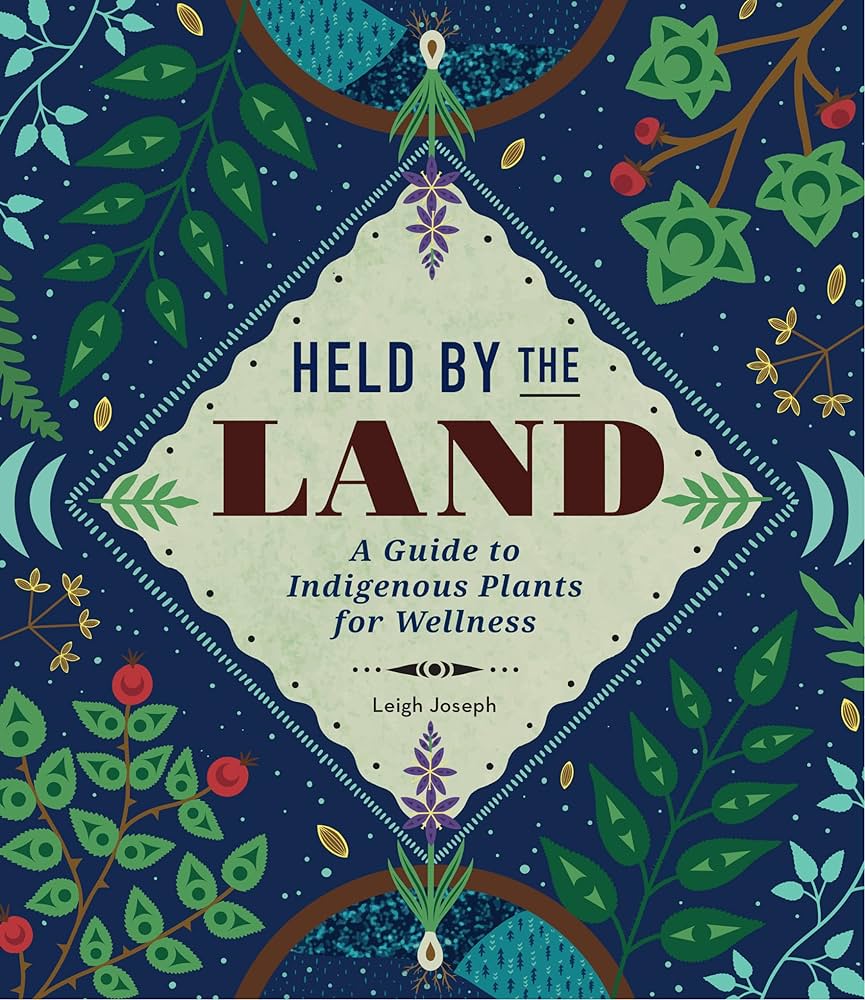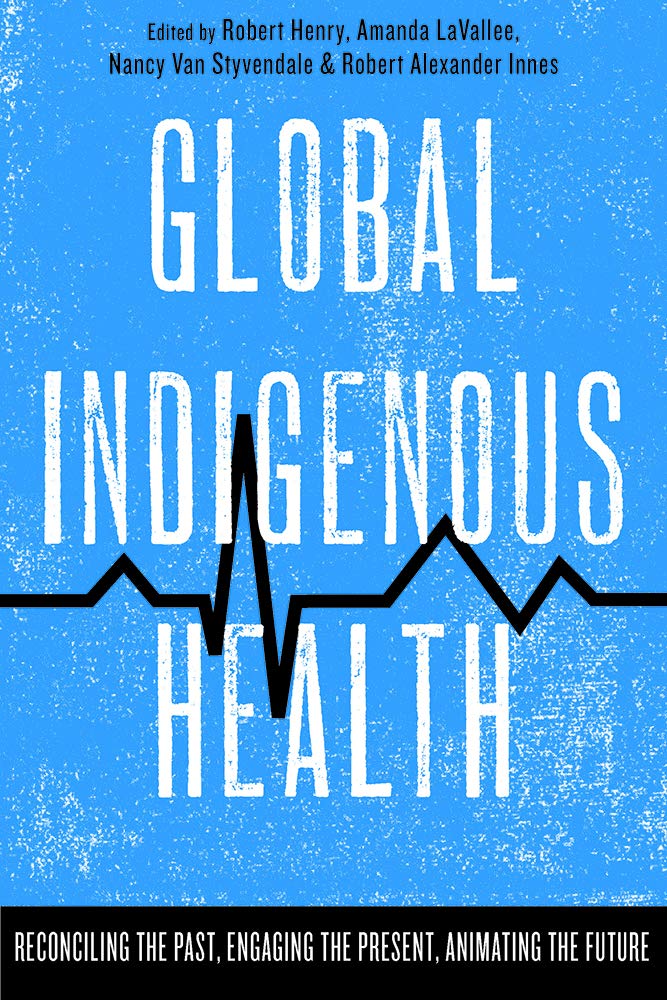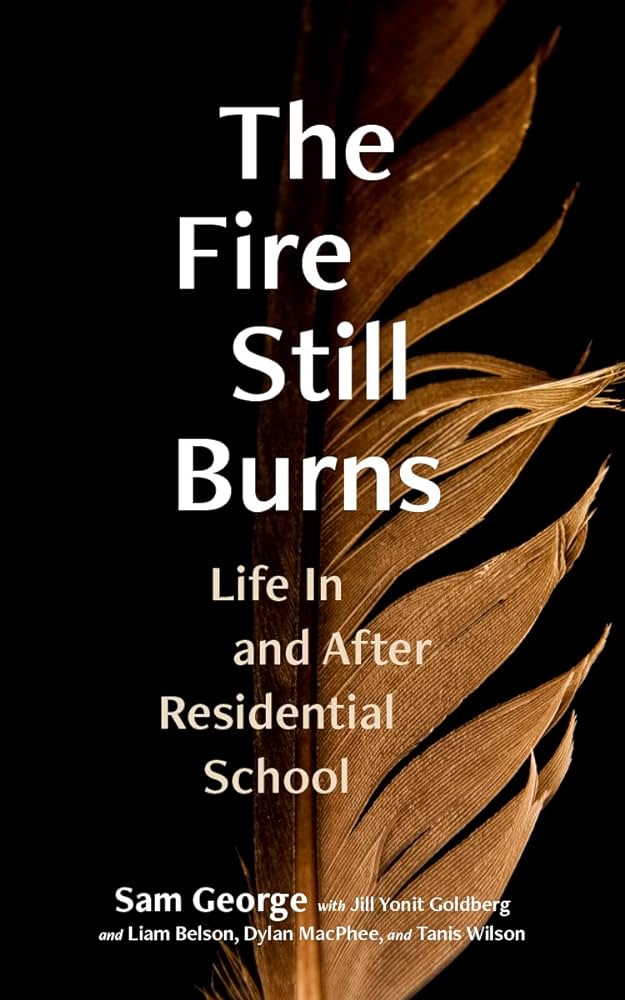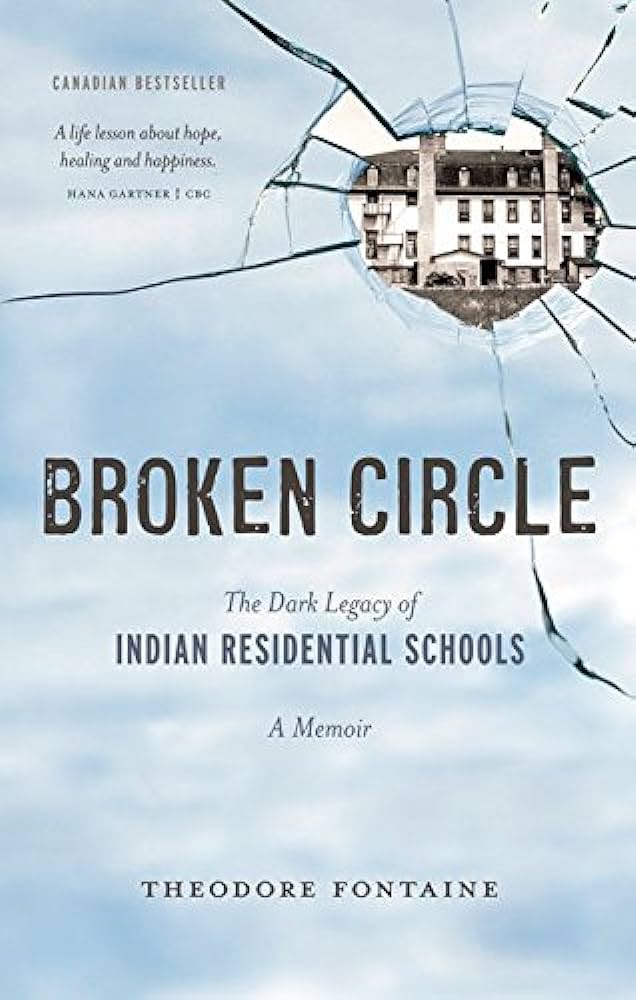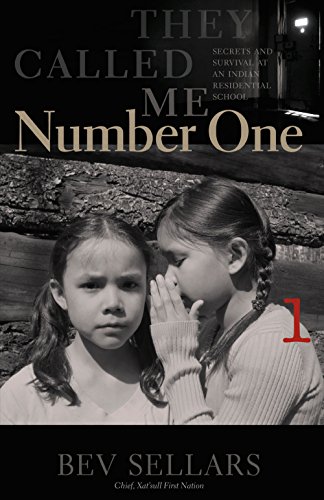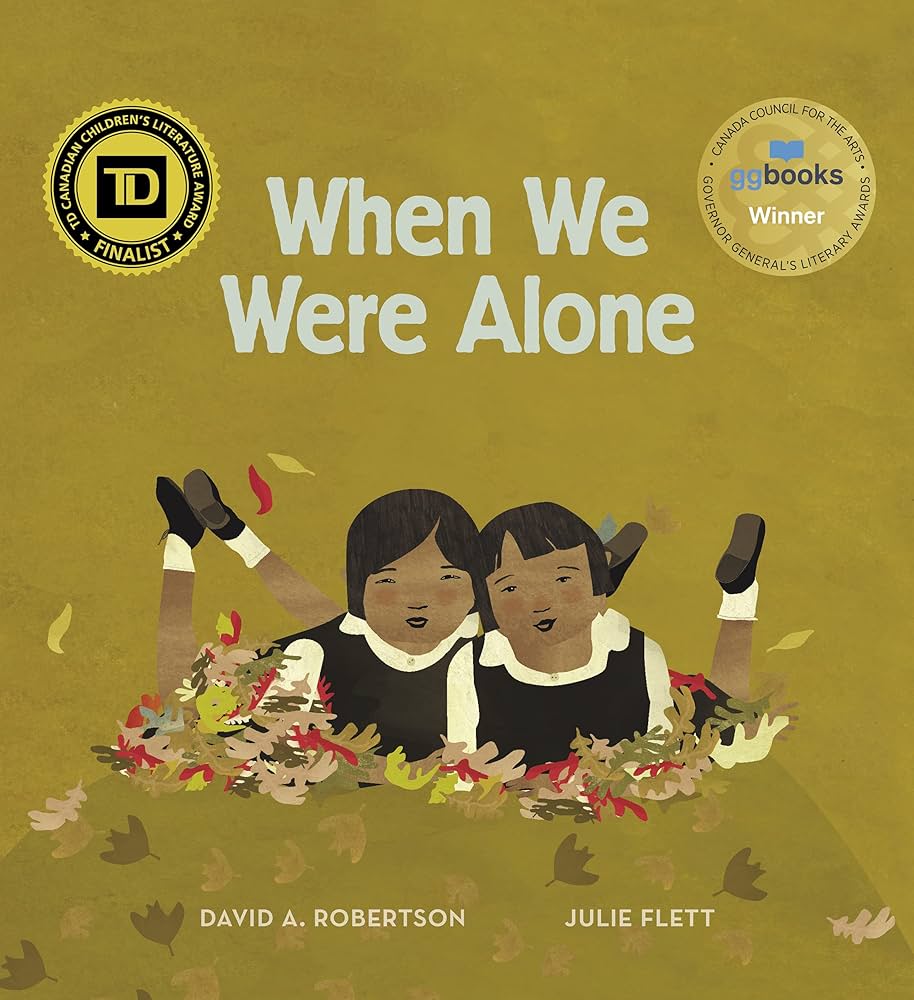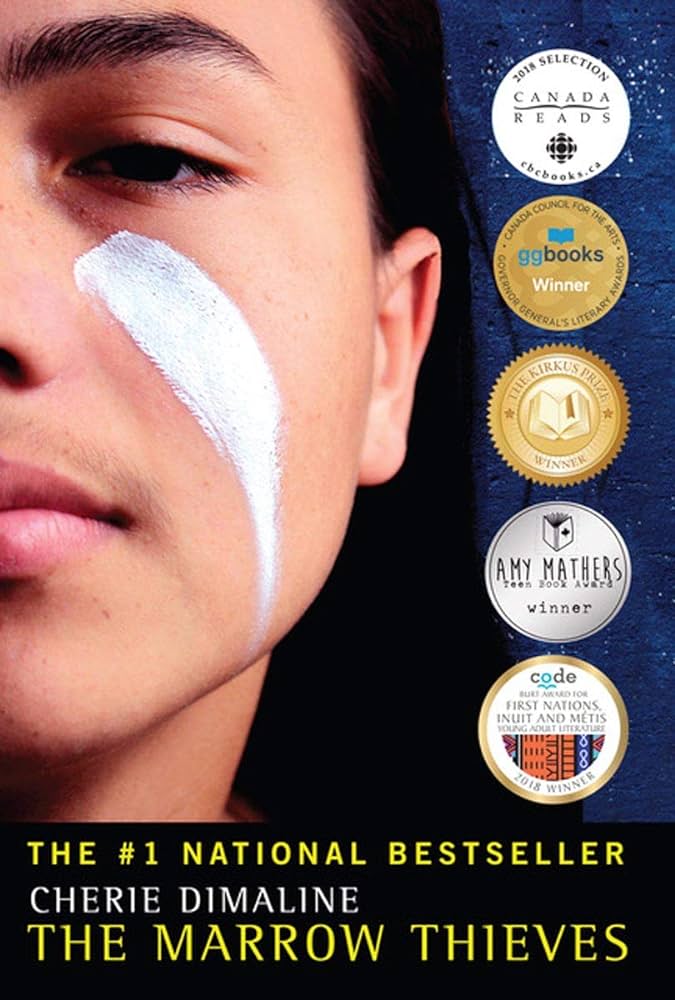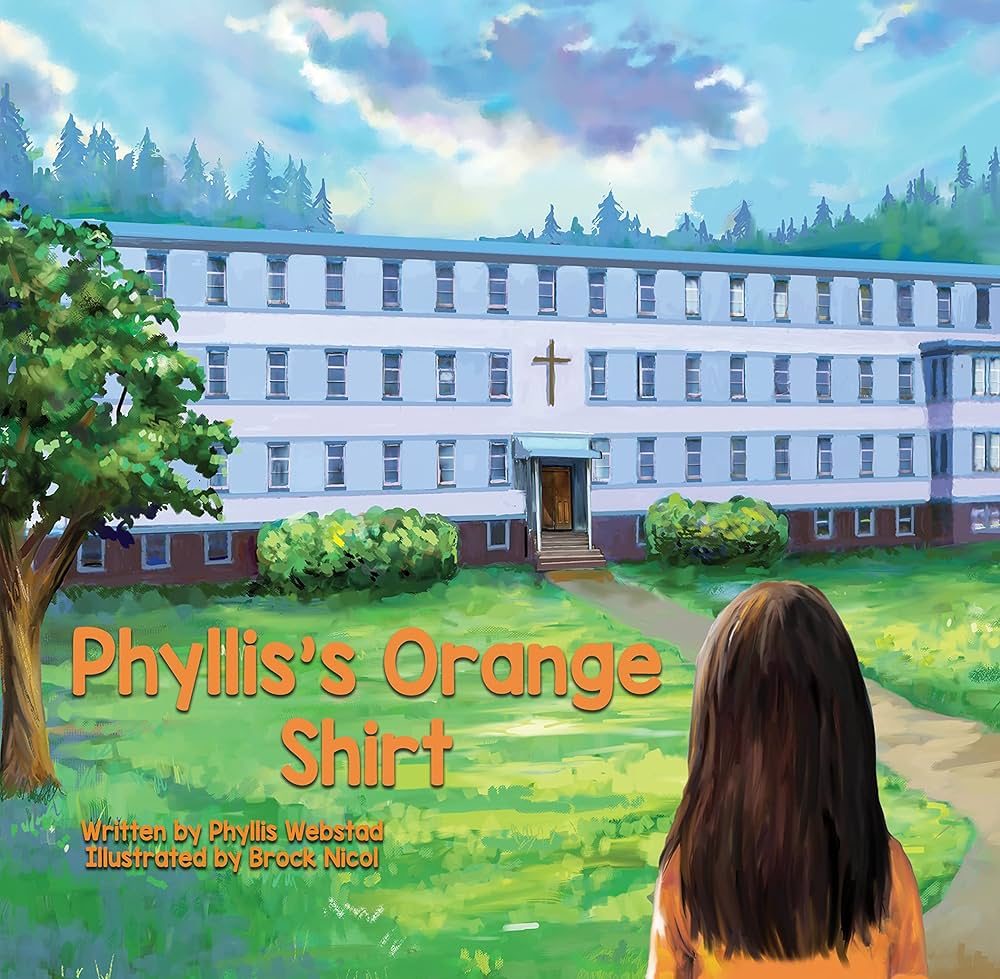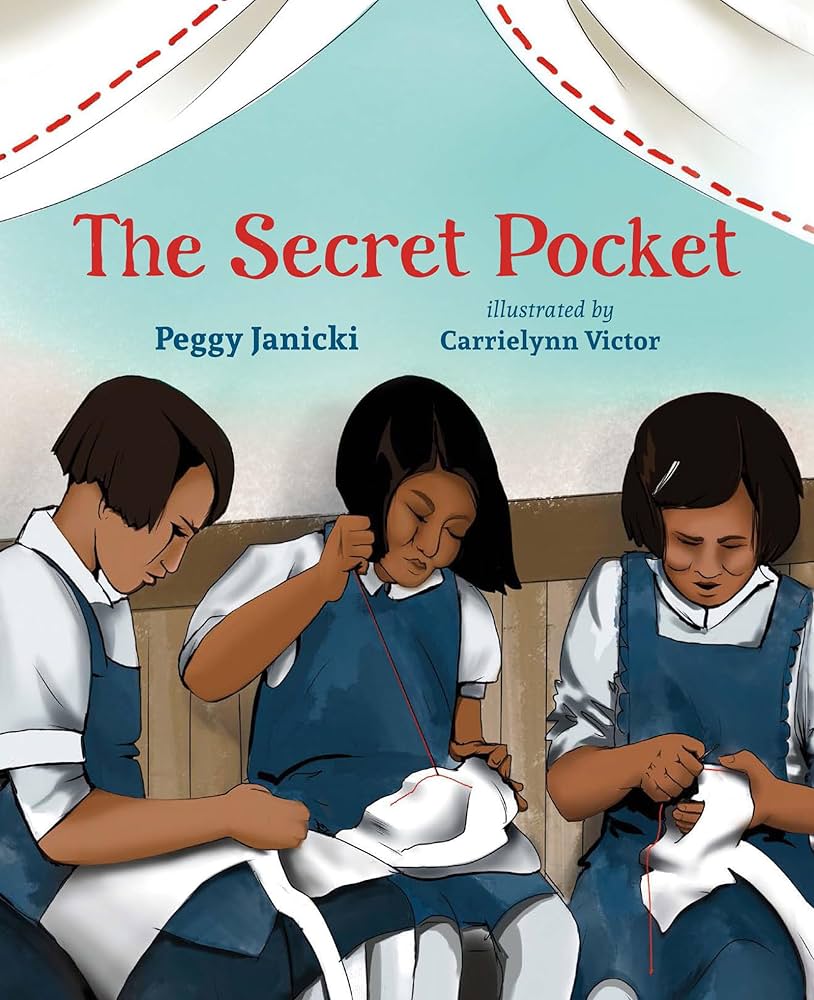We are often asked for a list of recommended books on Indian Boarding School history and experiences in the U.S. Knowing our history and speaking the truth are just the beginning of the ways in which we can bring about healing and transformation for ourselves, our families and communities, and our Nations here on Turtle Island. We are happy to share this sampling of books and we encourage you to share and read with others.
General Native American Boarding School History
Education Beyond the Mesas
Gilbert, Matthew Sakiestewa. Lincoln: University of Nebraska Press, 2010.
Education beyond the Mesas is the fascinating story of how generations of Hopi schoolchildren from northeastern Arizona “turned the power” by using compulsory federal education to affirm their way of life and better their community. Sherman Institute in Riverside, California, one of the largest off-reservation boarding schools in the United States, followed other federally funded boarding schools of the late nineteenth and early twentieth centuries in promoting the assimilation of indigenous people into mainstream America. Many Hopi schoolchildren, deeply conversant in Hopi values and traditional education before being sent to Sherman Institute, resisted this program of acculturation. Immersed in learning about another world, generations of Hopi children drew on their culture to skillfully navigate a system designed to change them irrevocably. In fact, not only did the Hopi children strengthen their commitment to their families and communities while away in the “land of oranges,” they used their new skills, fluency in English, and knowledge of politics and economics to help their people when they eventually returned home.
Matthew Sakiestewa Gilbert draws on interviews, archival records, and his own experiences growing up in the Hopi community to offer a powerful account of a quiet, enduring triumph.
Listening to our Grandmothers' Stories: The Bloomfield Academy for Chickasaw Females, 1852-1949
Cobb, Amanda J. Lincoln: University of Nebraska Press. 2000
Bloomfield Academy was founded in 1852 by the Chickasaw Nation in conjunction with missionaries. It remained open for nearly a century, offering Chickasaw girls one of the finest educations in the West. After being forcibly relocated to Indian Territory, the Chickasaws viewed education as instrumental to their survival in a rapidly changing world. Bloomfield became their way to prepare emerging generations of Chickasaw girls for new challenges and opportunities.
Amanda J. Cobb became interested in Bloomfield Academy because of her grandmother, Ida Mae Pratt Cobb, an alumna from the 1920s. Drawing on letters, reports, interviews with students, and school programs, Cobb recounts the academy’s success story. In stark contrast to the federally run off-reservation boarding schools in operation at the time, Bloomfield represents a rare instance of tribal control in education. For the Chickasaw Nation, Bloomfield—a tool of assimilation—became an important method of self-preservation.
No Turning Back: A Hopi Indian Woman’s Struggle to Live in Two Worlds
Qoyawayma, Polingaysi. University of New Mexico Press. 1977
This is the story of the Hopi woman who chose in her early youth to live in the white man's world. She became known as Elizabeth Q. White. Born at Old Oraibi, Arizona, she was of the first Hopi children to be educated in white schools. Later she was the first Hopi to become a teacher in those schools. Here her biographer records Qoyowayma's break with the traditions of her people and her struggle to gain acceptance for her radical teaching methods.
Throughout her life this remarkable woman has held to the best in Hopi culture and has fought to maintain it in the lives of her students. Her story, rich in information on Hopi legend and ceremony, is a moving introduction to the Hopi way of life.
The Rediscovery of America
Blackhawk, Ned. 2023.
The most enduring feature of U.S. history is the presence of Native Americans, yet most histories focus on Europeans and their descendants. This long practice of ignoring Indigenous history is changing, however, as a new generation of scholars insists that any full American history address the struggle, survival, and resurgence of American Indian nations. Indigenous history is essential to understanding the evolution of modern America. Ned Blackhawk interweaves five centuries of Native and non‑Native histories, from Spanish colonial exploration to the rise of Native American self-determination in the late twentieth century. In this transformative synthesis he shows that
European colonization in the 1600s was never a predetermined success;
Native nations helped shape England’s crisis of empire;
- the first shots of the American Revolution were prompted by Indian affairs in the interior;
- California Indians targeted by federally funded militias were among the first casualties of the Civil War;
- the Union victory forever recalibrated Native communities across the West;
- twentieth-century reservation activists refashioned American law and policy.
Blackhawk’s retelling of U.S. history acknowledges the enduring power, agency, and survival of Indigenous peoples, yielding a truer account of the United States and revealing anew the varied meanings of America.
Unsettling Truths: The Ongoing, Dehumanizing Legacy of the Doctrine of Discovery
Mark, Charles. Rah, Soong-Chan. 2019
Injustice has plagued American society for centuries. And we cannot move toward being a more just nation without understanding the root causes that have shaped our culture and institutions. In this prophetic blend of history, theology, and cultural commentary, Mark Charles and Soong-Chan Rah reveal the far-reaching, damaging effects of the "Doctrine of Discovery." In the fifteenth century, official church edicts gave Christian explorers the right to claim territories they "discovered." This was institutionalized as an implicit national framework that justifies American triumphalism, white supremacy, and ongoing injustices. The result is that the dominant culture idealizes a history of discovery, opportunity, expansion, and equality, while minority communities have been traumatized by colonization, slavery, segregation, and dehumanization. Healing begins when deeply entrenched beliefs are unsettled. Charles and Rah aim to recover a common memory and shared understanding of where we have been and where we are going. As other nations have instituted truth and reconciliation commissions, so do the authors call our nation and churches to a truth-telling that will expose past injustices and open the door to conciliation and true community.
UNeducation Vol. 1: A Residential School Graphic Novel
Eaglespeaker, Jason. 2014
The chilling chronicles of a family's exploitation in Canada's notorious residential schools.
It began as a single scrapbook, created for educators. UNeducation, Vol 1 is now in schools, universities, libraries, treatment/corrections centers, healing initiatives, government agencies and educator trainings worldwide. Gain a full and proper education about a dark episode in North American history. These haunting chapters await:
- You Can't Sugarcoat Genocide
- To Kill The Indian In The Child
- Isolated Incident
- No History of Colonialism?
- Aggressive Assimilation
- The Law
- Speak English
- Gauntlet
Fiction
A Council of Dolls
Power, Mona Susan. 2023
From the mid-century metropolis of Chicago to the windswept ancestral lands of the Dakota people, to the bleak and brutal Indian boarding schools, A Council of Dolls is the story of three women, told in part through the stories of the dolls they carried.... Sissy, born 1961: Sissy's relationship with her beautiful and volatile mother is difficult, even dangerous, but her life is also filled with beautiful things, including a new Christmas present, a doll called Ethel. Ethel whispers advice and kindness in Sissy's ear, and in one especially terrifying moment, maybe even saves Sissy's life. Lillian, born 1925: Born in her ancestral lands in a time of terrible change, Lillian clings to her sister, Blanche, and her doll, Mae. When the sisters are forced to attend an "Indian school" far from their home, Blanche refuses to be cowed by the school's abusive nuns. But when tragedy strikes the sisters, the doll Mae finds her way to defend the girls. Cora, born 1888: Though she was born into the brutal legacy of the "Indian Wars," Cora isn't afraid of the white men who remove her to a school across the country to be "civilized." When teachers burn her beloved buckskin and beaded doll Winona, Cora discovers that the spirit of Winona may not be entirely lost.
Stealing, A Novel
Verble, Margaret. 2023
A gripping, gut-punch of a novel about a Cherokee child removed from her family and sent to a Christian boarding school in the 1950s—an ambitious, eye-opening reckoning of history and small-town prejudices from Pulitzer Prize finalist Margaret Verble. Kit Crockett lives on a farm with her grief-stricken, widowed father, tending the garden, fishing in a local stream, and reading Nancy Drew mysteries from the library bookmobile. One day, Kit discovers a mysterious and beautiful woman has moved in just down the road. Kit and the newcomer, Bella, become friends, and the lonely Kit draws comfort from her. But when a malicious neighbor finds out, Kit suddenly finds herself at the center of a tragic, fatal crime and becomes a ward of the court. Her Cherokee family wants to raise her, but the righteous Christians in town instead send her to a religious boarding school. Kit’s heritage is attacked, and she’s subjected to religious indoctrination and other forms of abuse. But Kit secretly keeps a journal recounting what she remembers—and revealing just what she has forgotten. Over the course of Stealing, she unravels the truth of how she ended up at the school and plots a way out. If only she can make her plan work in time.
Healing and Decolonization
The Seven Circles: Indigenous Teachings for Living Well
Lugar, Chelsea. Collins, Thosh. 2022
When wellness teachers and husband-wife duo Chelsey Luger and Thosh Collins founded their Indigenous wellness initiative, Well for Culture, they extended an invitation to all to honor their whole self through Native wellness philosophies and practices. In reclaiming this ancient wisdom for health and wellbeing—drawing from traditions spanning multiple tribes—they developed the Seven Circles, a holistic model for modern living rooted in timeless teachings from their ancestors. Luger and Collins have introduced this universally adaptable template for living well to Ivy league universities and corporations like Nike, Adidas, and Google, and now make it available to everyone in this wise guide.
The Seven Generations and the Seven Grandfather Teachings
Vukelich, James. 2023
Discover the profound wisdom of the Anishinaabeg/Ojibwe people in "The Seven Generations and The Seven Grandfather Teachings." In this captivating journey, you will immerse yourself in timeless teachings that illuminate the way to interconnectedness and interdependence. As the spiritual translation of the sacred laws, the Seven Grandfather teachings guide us towards Mino-bimaadiziwin, "the good life" – a life of harmony, free from contradiction or conflict. Prepare to embark on a transformative path of peace and balance, where ancestral knowledge offers invaluable lessons for a fulfilling existence.
Recovering Our Ancestors' Gardens: Indigenous Recipes and Guide to Diet and Fitness
Mihesuah, Devon. 2020
Winner of the Gourmand International World Cookbook Award,Recovering Our Ancestors’ Gardens is back! Featuring an expanded array of tempting recipes of indigenous ingredients and practical advice about health, fitness, and becoming involved in the burgeoning indigenous food sovereignty movement, the acclaimed Choctaw author and scholar Devon A. Mihesuah draws on the rich indigenous heritages of this continent to offer a helpful guide to a healthier life.
Held by the Land: A Guide to Indigenous Plants for Wellness
Joseph, Leigh. 2023
Author Leigh Joseph, an ethnobotanist and a member of the Squamish Nation, provides a beautifully illustrated essential introduction to Indigenous plant knowledge. Plants can be a great source of healing as well as nourishment, and the practice of growing and harvesting from trees, flowering herbs, and other plants is a powerful way to become more connected to the land. The Indigenous Peoples of North America have long traditions of using native plants as medicine as well as for food.
Global Indigenous Health: Reconciling the Past, Engaging the Present, Animating the Future
Robert Hentry et al. 2018
Indigenous peoples globally have a keen understanding of their health and wellness through traditional knowledge systems. In the past, traditional understandings of health often intersected with individual, community, and environmental relationships of well-being, creating an equilibrium of living well. However, colonization and the imposition of colonial policies regarding health, justice, and the environment have dramatically impacted Indigenous peoples’ health.
The Fire Still Burns: Life In and After Residential School
George, Sam. 2023
Set in the Vancouver area in the late 1940s and through to the present day, this candid account follows Sam from his idyllic childhood growing up on the Eslhá7an (Mission) reserve to the confines of St. Paul’s Indian Residential School and then into a life of addiction and incarceration. But an ember of Sam’s spirit always burned within him, and even in the darkest of places he retained his humor and dignity until he found the strength to face his past. The Fire Still Burns is an unflinching look at the horrors of a childhood spent trapped within the Indian Residential School system and the long-term effects on survivors. It illustrates the healing power of one’s culture and the resilience that allows an individual to rebuild a life and a future.
Broken Circle: The Dark Legacy of Indian Residential Schools
Fontaine, Theodore. 2022
Originally published in 2010, Broken Circle: The Dark Legacy of Indian Residential Schools chronicles the impact of Theodore Fontaine’s harrowing experiences at Fort Alexander and Assiniboia Indian Residential Schools, including psychological, emotional, and sexual abuse; disconnection from his language and culture; and the loss of his family and community. Told as remembrances infused with insights gained through his long healing process, Fontaine goes beyond the details of the abuse that he suffered to relate a unique understanding of why most residential school survivors have post-traumatic stress disorders and why succeeding generations of Indigenous children suffer from this dark chapter in history. With a new foreword by Andrew Woolford, professor of sociology and criminology at the University of Manitoba, this commemorative edition will continue to serve as a powerful testament to survival, self-discovery, and healing.
They Called Me Number One
Sellars, Bev. 2012
Like thousands of Aboriginal children in Canada, and elsewhere in the colonized world, Xatsu'll chief Bev Sellars spent part of her childhood as a student in a church-run residential school. These institutions endeavored to "civilize" Native children through Christian teachings; forced separation from family, language, and culture; and strict discipline. Perhaps the most symbolically potent strategy used to alienate residential school children was addressing them by assigned numbers only―not by the names with which they knew and understood themselves. In this frank and poignant memoir of her years at St. Joseph's Mission, Sellars breaks her silence about the residential school's lasting effects on her and her family―from substance abuse to suicide attempts―and eloquently articulates her own path to healing. Number One comes at a time of recognition―by governments and society at large―that only through knowing the truth about these past injustices can we begin to redress them.
Children and Young Adults
When We Were Alone
Robertson, David A. Highwater Press. 2016
A young girl notices things about her grandmother that make her curious. Why does her grandmother have long, braided hair and beautifully coloured clothing? Why does she speak Cree and spend so much time with her family? As the girl asks questions, her grandmother shares her experiences in a residential school, when all of these things were taken away.
The Marrow Thieves
Dimaline, Cherie. 2017
Just when you think you have nothing left to lose, they come for your dreams. Humanity has nearly destroyed its world through global warming, but now an even greater evil lurks. The indigenous people of North America are being hunted and harvested for their bone marrow, which carries the key to recovering something the rest of the population has lost: the ability to dream. In this dark world, Frenchie and his companions struggle to survive as they make their way up north to the old lands. For now, survival means staying hidden - but what they don't know is that one of them holds the secret to defeating the marrow thieves.
Phyllis’s Orange Shirt
Webstad, Phyllis. 2019
The true story of Phyllis Webstad and her orange shirt that started the "Orange Shirt Day - Every Child Matters" movement.
The true story of Phyllis Webstad and her orange shirt that started the "Orange Shirt Day - Every Child Matters" movement.
When Phyllis Webstad (nee Jack) turned six, she went to Residential School for the first time. On her first day at school, she wore a shiny orange shirt that her Granny had bought for her, but when she got to the school, it was taken away from her and never returned. This is the true story of Phyllis and her orange shirt. It is also the true story of Orange Shirt Day (an important day of remembrance for First Nations and non-First Nations peoples).
The Secret Pocket
Janicki, Peggy. 2023
The true story of how Indigenous girls at a residential school sewed secret pockets into their dresses to hide food and survive.
Mary was four years old when she was first taken away to the Lejac Indian Residential School. It was far away from her home and family. Always hungry and cold, there was little comfort for young Mary. Speaking Dakelh was forbidden and the nuns and priest were always watching, ready to punish. Mary and the other girls had a genius idea: drawing on the knowledge from their mothers, aunts and grandmothers who were all master sewers, the girls would sew hidden pockets in their clothes to hide food. They secretly gathered materials and sewed at nighttime, then used their pockets to hide apples, carrots and pieces of bread to share with the younger girls.
Based on the author's mother's experience at residential school, The Secret Pocket is a story of survival and resilience in the face of genocide and cruelty. But it's also a celebration of quiet resistance to the injustice of residential schools and how the sewing skills passed down through generations of Indigenous women gave these girls a future, stitch by stitch.





